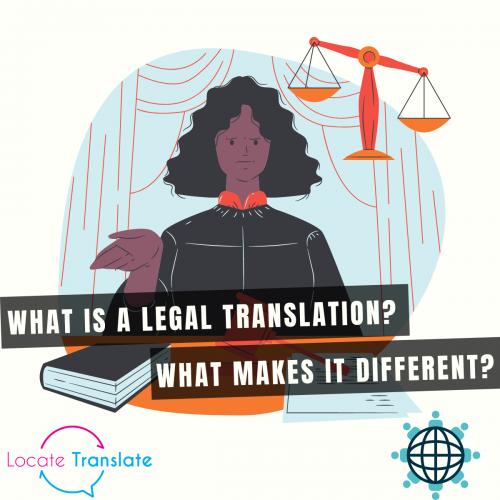What is Legal Translation and What Makes it Different?

One can trace the upsurge that legal translations have seen to the advent of liberal economies. As globalization spread its footprint across the globe, with it ensued the exchange of goods and services between countries. That in turn created the demand for the translation of legal documentation from the source language into multiple languages, depending on the target country.
But what is a legal translation and what makes translating legal documents differ from, say, translating a birth certificate?
One straightforward reason one can think of is the complex legal terminology involved in legal documentation, which only professional translators can handle and replicate accurately from the source language and produce in the target language. That’s the reason why hiring professional translators is imperative for accurate legal translation.
You might ask: “Why does it matter so much to perfectly translate legal documents?”
Well, it’s because even a minor error, a simple mistranslation, or a minor misunderstanding, can land you in trouble resulting in legal exposure and even a lawsuit, sometimes. So you have to be a bit extra careful when translating court documents.
Only well qualified and specialized translators that have some legal background can handle the translation of legal documents to the satisfaction of clients as well as legal standards.
So what is a legal translation?
This is how Wikipedia defines legal translation:
“Legal translation is the translation of language used in legal settings and for legal purposes. The legal translation may also imply that it is a specific type of translation only used in law, which is not always the case.”
Simply put, legal translation involves the translation of various types of corporate and business documents, including the following:
Patent filings
Contracts
Letters of credit
Licenses
Registration documents
Powers of attorney
Partnership deeds
Sales contracts
Trademarks and copyrights
Service agreements
Distribution agreements
Personal documents
What happens in legal translation is the transference of information from one legal system to another while taking into account the differences in judiciary systems from one country to another. As a result, it’s a must for a legal translator to have a legal and linguistic understanding of both legal systems.
So what makes legal translation different?
Legal translation is different because of the language involved which has a typical linguistic feature not seen in the language of other documents. Whether it’s lexical, syntactic or pragmatic features or complex legal terminology, these features render the translation of legal language very different.
More than just the translation of language, legal translation involves the translation of one legal system into another. Therefore, it’s about producing parallel texts, identical in meaning but different in language.
Post Your Ad Here
Comments